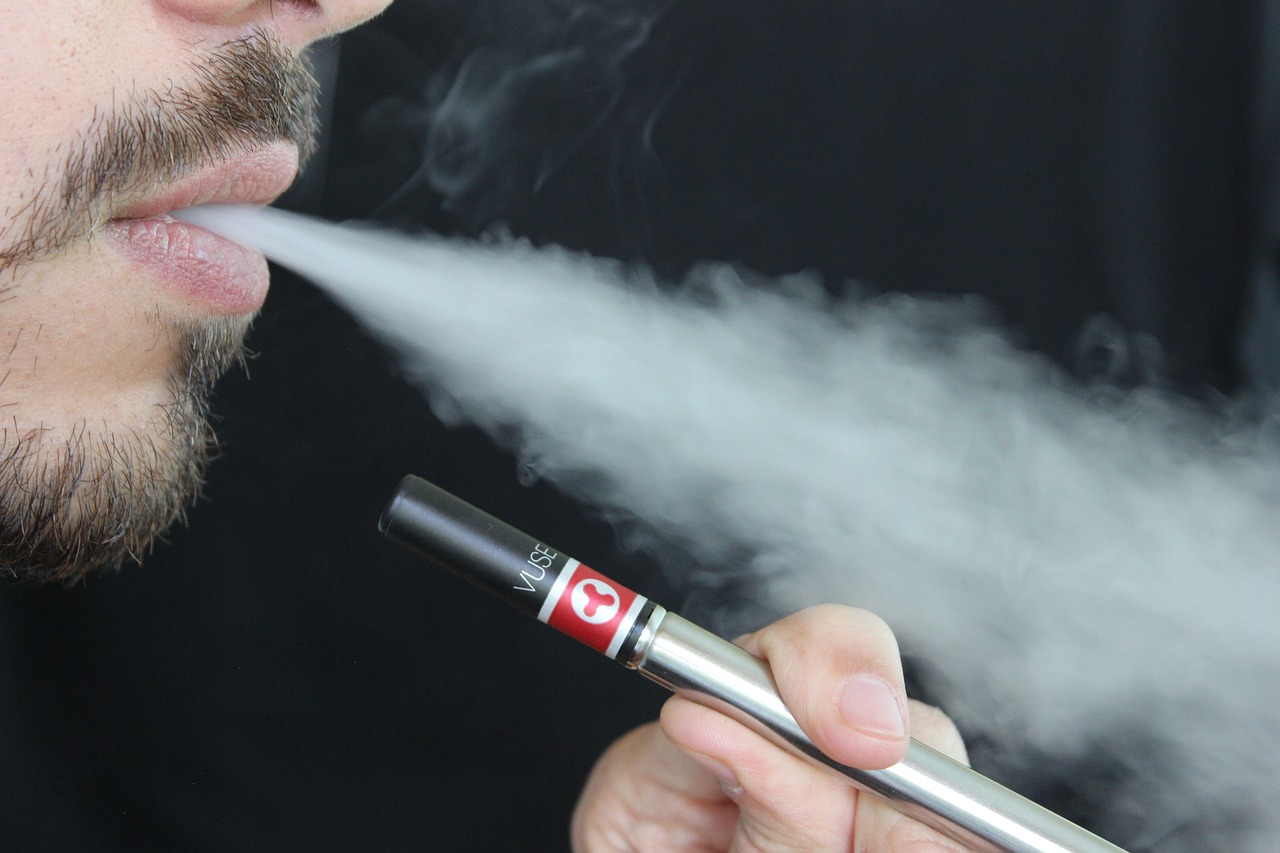WHO demands ban on vapes and tobacco selling shops around schools

The World Health Organization (WHO) has issued a formal recommendation urging the prohibition of tobacco and vape sales in shops located in close proximity to educational institutions, with the primary objective of safeguarding the well-being of children.
The WHO emphasizes the importance of establishing tobacco and nicotine-free zones around schools, and urges nations to take further measures to address the accessibility of these detrimental products. Additionally, the WHO advocates for the implementation of restrictions on advertising and promotional activities in the vicinity of educational institutions, while strongly discouraging any form of sponsorship from the tobacco and nicotine industries.
In a recently published report, the World Health Organization (WHO) has raised serious concerns regarding the adoption of ‘unethical’ practices by various firms aimed at enticing children.
Dr. Hans Henri P. Kluge, the esteemed regional director for the WHO European Region, expressed profound distress over the persistent targeting of young individuals by the tobacco industry, which not only generates substantial profits but also poses a significant threat to their well-being.
‘If we don’t take urgent action now, we risk seeing the next generation of tobacco and nicotine users recruited through tobacco industries’ unethical practices.’
 Health authorities are expressing apprehension regarding the promotion of e-cigarettes as a purportedly “healthier” substitute for smoking, as this may inadvertently increase their appeal to children and potentially serve as a gateway to traditional cigarettes.
Health authorities are expressing apprehension regarding the promotion of e-cigarettes as a purportedly “healthier” substitute for smoking, as this may inadvertently increase their appeal to children and potentially serve as a gateway to traditional cigarettes.
Of particular concern is the extensive accessibility of disposable vapes, which are offered in enticing flavors like gummy bear and watermelon, and are conveniently priced within the range of pocket money.
The report says: ‘Tobacco and related industries have sought to exploit children and adolescents, employing marketing tactics and targeting them directly with a new portfolio of products, despite the threat to their health.
‘Nicotine has been made more palatable and easier to access by marketing products in sweet and fruity flavours and selling products near schools, online and in vending machines, where age verification can be circumvented.’
It adds: ‘Banning nicotine and tobacco products on campus is important, but it is not enough by itself.
‘In order to protect children from manipulation by tobacco and related industries and prevent uptake of nicotine and tobacco products by young people, a comprehensive approach is essential.’
The recently published report by the World Health Organization (WHO), titled ‘Freedom from tobacco and nicotine’, highlights that the prevalence of youth tobacco and nicotine consumption is not a random occurrence, but rather influenced by various factors, including targeted advertising campaigns and marketing strategies that depict these products as fashionable or appealing.
The report emphasizes that nicotine is a substance with a high level of addictiveness and poses significant harm, particularly to the developing brains of young individuals. Furthermore, it underscores the vulnerability of children to the impact of marketing efforts promoting these products.
Note: The revised text maintains a professional tone and conveys the same information as the original text.
It adds: ‘This situation emphasises the need for more effective and comprehensive measures to prevent children and young people from starting tobacco and nicotine use.’
 Earlier this month, reports surfaced indicating that the UK government is planning to prohibit the use of disposable vapes in order to safeguard children, following similar concerns raised by leading medical professionals in the country. The Royal College of Paediatrics and Child Health has previously advocated for a ban on disposable vapes, citing the alarming rise of youth vaping among children as an epidemic. The College has cautioned that e-cigarettes are not without risk and can be just as addictive, if not more so, than traditional cigarettes.
Earlier this month, reports surfaced indicating that the UK government is planning to prohibit the use of disposable vapes in order to safeguard children, following similar concerns raised by leading medical professionals in the country. The Royal College of Paediatrics and Child Health has previously advocated for a ban on disposable vapes, citing the alarming rise of youth vaping among children as an epidemic. The College has cautioned that e-cigarettes are not without risk and can be just as addictive, if not more so, than traditional cigarettes.
Urgent measures are needed to protect young people, as experts concur that long-term data is required to fully understand the effects of vaping. England’s chief medical officer, Professor Sir Chris Whitty, has previously stated that vaping is much safer than smoking for those who already smoke, but marketing vapes to children is completely unacceptable.
The Government has established a goal for England to achieve smoke-free status by 2030. Recent reports indicate that Rishi Sunak may endorse a recommendation that effectively prohibits the sale of cigarettes to future generations. The Prime Minister is reportedly contemplating the implementation of some of the most stringent anti-smoking measures globally, which would involve a gradual increase in the legal age for tobacco consumption.
Last year, a comprehensive review led by Dr Javed Khan supported England’s adoption of a strategy similar to that of New Zealand, which plans to incrementally raise the minimum age for purchasing tobacco, thereby preventing individuals born on or after January 1, 2009, from accessing tobacco products. Dr Khan proposed “incrementally increasing the age of sale by one year annually until the purchase of tobacco products is prohibited in this country.”
If this plan is implemented by 2026, individuals who are currently 15 years old or younger would never be able to purchase cigarettes. In his report, commissioned by the Government and published in June 2022, Dr Khan emphasized the need for immediate action, as England is projected to fall short of the 2030 target by at least seven years, with the most deprived areas not achieving it until 2044.
Dr Khan estimated that smoking imposes an annual cost of approximately £17 billion on society, with the NHS alone bearing a burden of £2.4 billion. The legal age for purchasing cigarettes and other tobacco products in England and Wales is currently 18, having been raised from 16 in 2007 under the previous Labour government.









